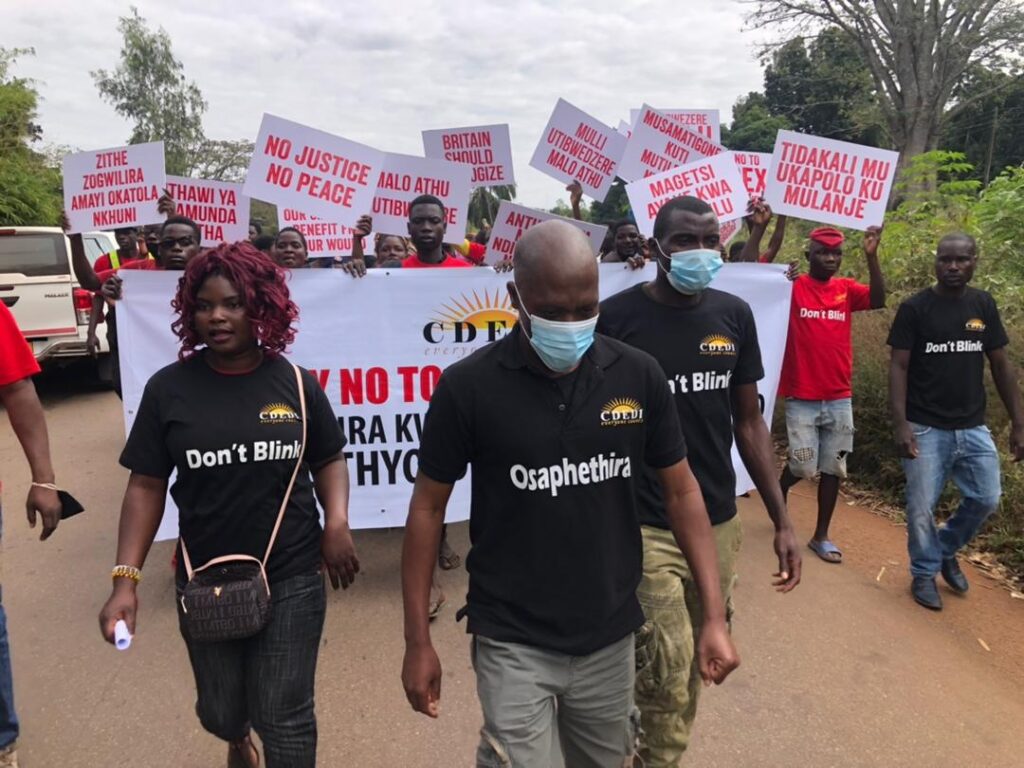By Watipaso Mzungu

In what could best be described as victory in the struggle for land reclamation drive by the people of Mulanje, Lujeri Tea Estate has given up a huge hectarage of its land for distribution to about five thousand people who encroached on it.
The estate initially dragged to court Traditional Authority (T/A) Njema, Group Village Headman (GVH) Gladson and some communities for encroaching the land.
The High Court Judge Mike Tembo initiated a mediation between the two parties. The mediation took about five hours right on the land in dispute.
Lawyer for the communities, Charles Kusiwa, confirmed to Nyasa Times on Tuesday that the mediation had resolved the matter, with the estate owners agreeing to give the people the land.
The outcome of the case has excited the Centre for Democracy and Economic Development Initiatives (CDEDI), a human rights watchdog, which has been fighting for the land reclamation in the tea districts of Mulanje and Thyolo.
CDEDI executive director Sylvester Namiwa said this is a clear testimony that the organization has been pursuing a genuine cause and that the mediation gives a ray of hope that soon the landless people of Thyolo and Mulanje will reclaim their stolen land.
“Secondly, the courts have shown their independence by not siding with the oppressors with economic muscle and political connection. This energizes the people to fight on in order for the error that happen in the 1890s to be corrected,” said Namiwa.
He said he expects other estates to emulate the example Lujeri Tea Estate has set by releasing part of its land to the landless communities.
“We expect all the estates to release all the idle land and make accessible to the people. Secondly, the locals should have stakes in the tea, macadamia, coffee and tungsten plantations. Thirdly, the British government should publicly apologize for the inhumane treatment our ancestors suffered when they resisted the land grabbing and the forced labour through Thangata system on top of that the remnants should be compensated,” said Namiwa.


